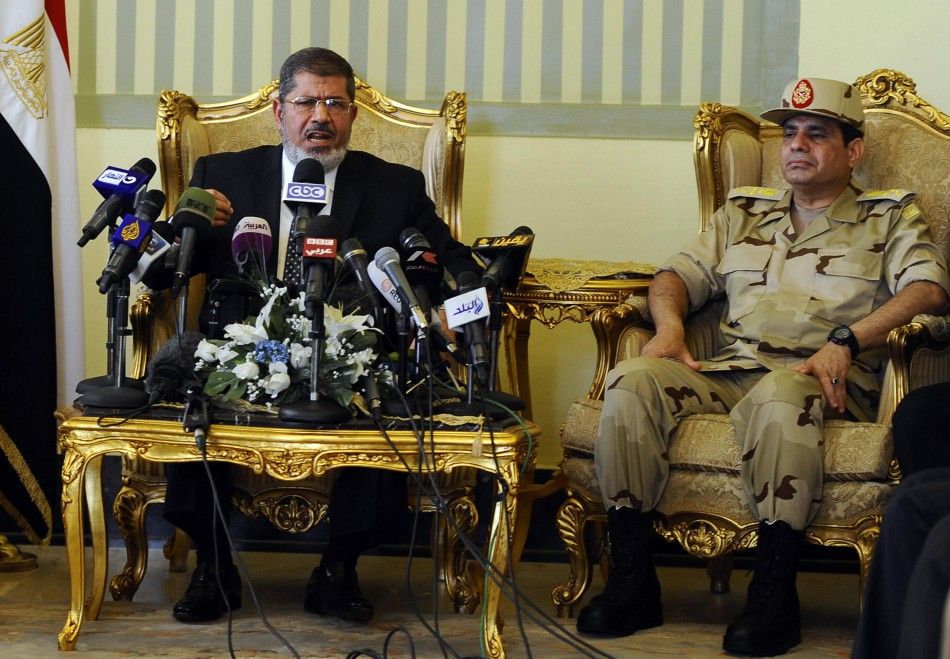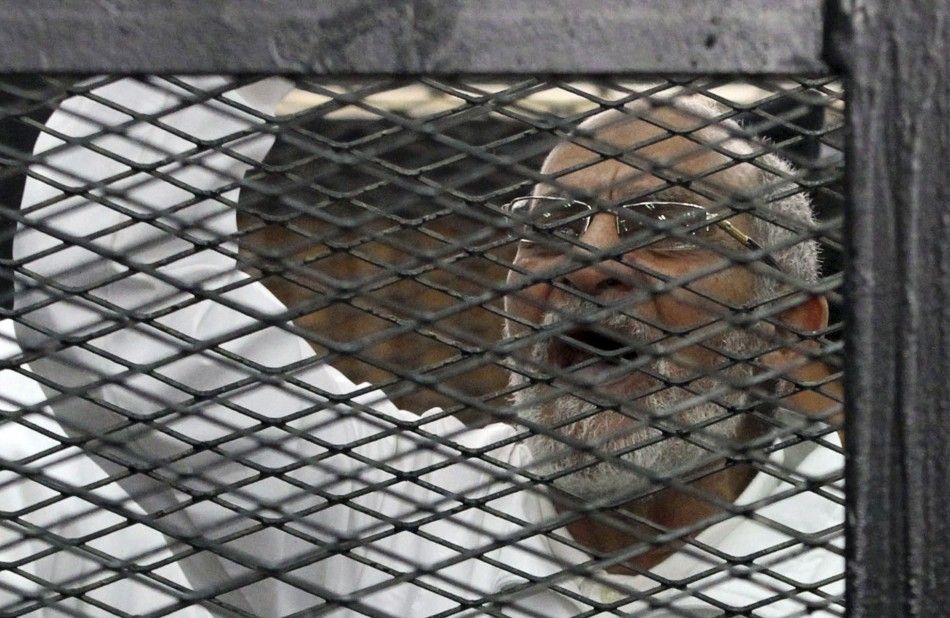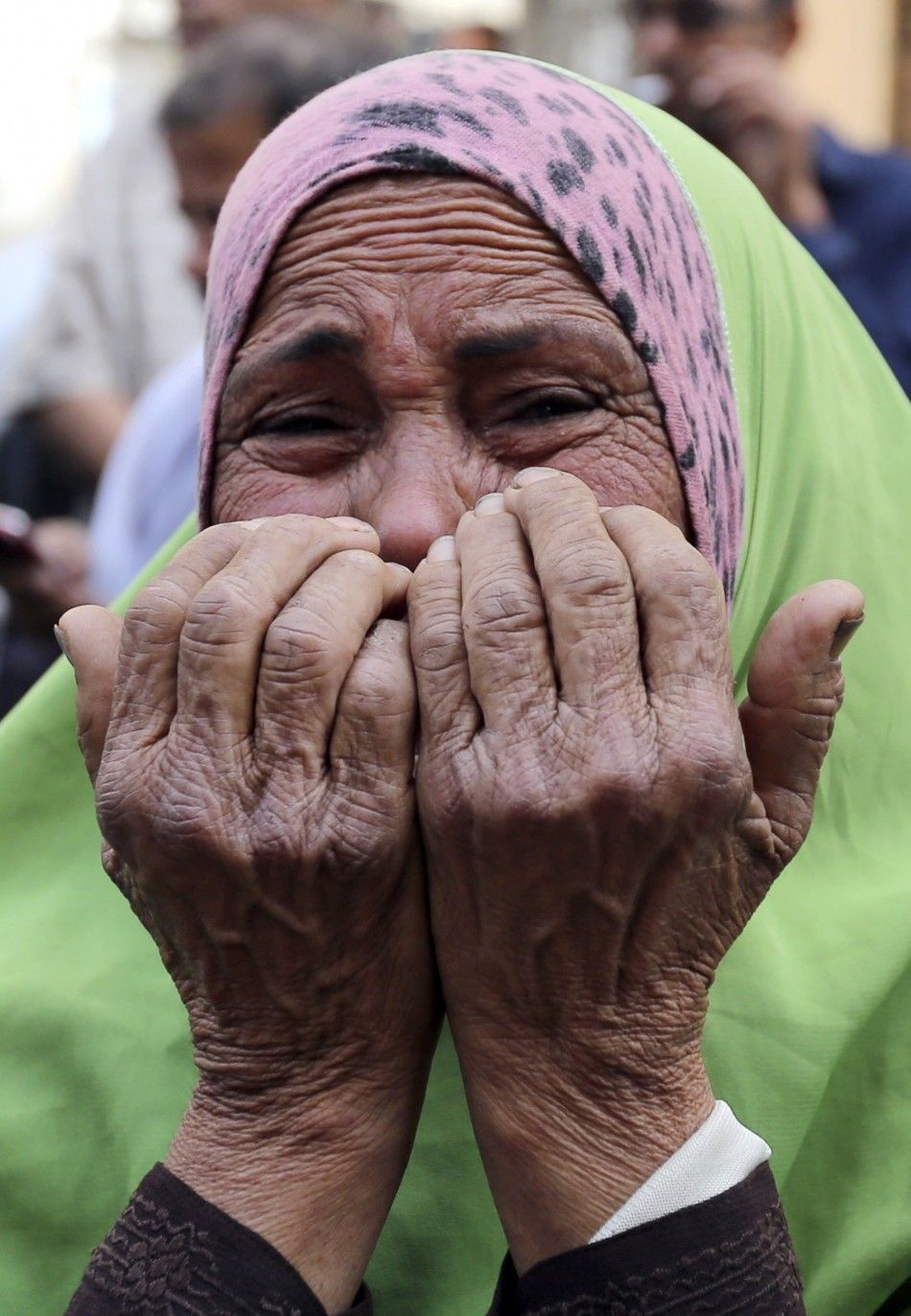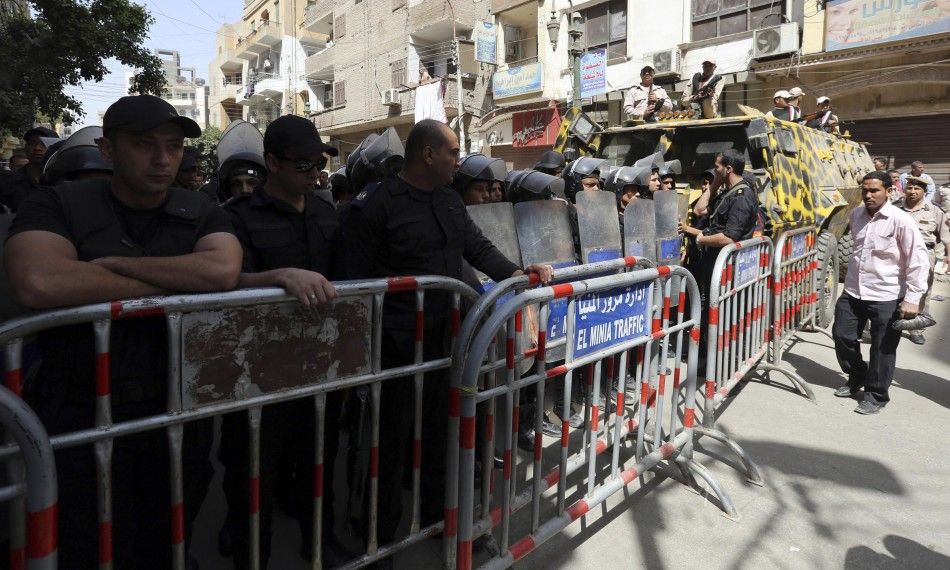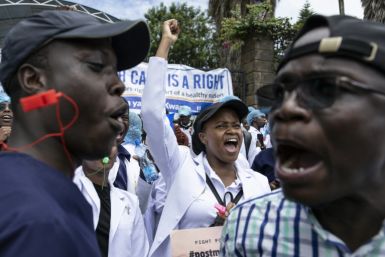Egyptian Court Passes Death Sentence to 700 Alleged Morsi Supporters, Civil War Looms?
Relatives and families of the 683 people sentenced to death by an Egyptian court warned the government Egypt faces a probable civil war uprising if it continues with its mass trial and collective executions.
"There is no evidence whatsoever," Mohammed Hassan Shehata, whose son Mahmoud was among those facing the death sentence. "If my son is guilty, behead him but if he is innocent, there will be a civil war." He said his son Mahmoud was arrested in January, six months after the alleged violence he was charged with.
The 683 people were alleged supporters of the country's ousted Islamist president. The spiritual leader of the Muslim Brotherhood leader, Mohammed Badie, have been included in the summary execution handed down on Monday by Judge Said Youssef.
The large group were charged against the attack that occurred in a police station in Minya in 2013. A policeman was killed from the incident.
The ruling will still need to be referred to the Grand Mufti, a requirement under Egyptian law. However such act is considered more as a formality and may not be instrumental to revert the court's decision.
"If the Grand Mufti upholds the death sentences for all or recommends reversing them, it won't mean anything to the judge," an unidentified judicial official told AP. "Only the judge has the right and the power to reverse his earlier decisions."
Ali Kamal, counsel for all the accused, blasted the way the supposed hearing transpired on Monday. It only lasted only eight minutes, he said. Families and media were barred from attending the proceedings. Security forces surrounded the court building and blocked roads. Next thing they knew, the death verdict has been handed down.
"This is against the spirit of the law," Kamal said.
Parts of the evidences lodged against the defendants, which faced nearly 14 charges, five of them punishable by death, mostly consisted of footage showing them attacking and looting a police station in Cairo. They were also seen on video setting fire to several government buildings.
"This is a public opinion case, there must be a swift, deterrent punishment," the unidentified judicial official said. "Yes, the verdict is very harsh, the number of people on trial is shocking, but it's proportional to the crimes."
Egyptian as well as international rights groups however blasted the ruling because it was handed down after only one hearing, with the defense never having the opportunity to present its case.
"The decisions are possibly the largest possible death sentences in recent world history. While they're exceptional in scale, they're certainly not exceptional in kind," Sarah Leah Whitson, executive director for Middle East and North Africa at Human Rights Watch, said. "It seems that these sentences are aimed at striking fear and terror into the hearts of those who oppose the interim government."
"This judge is a butcher," one of the relatives facing the death penalty said.
